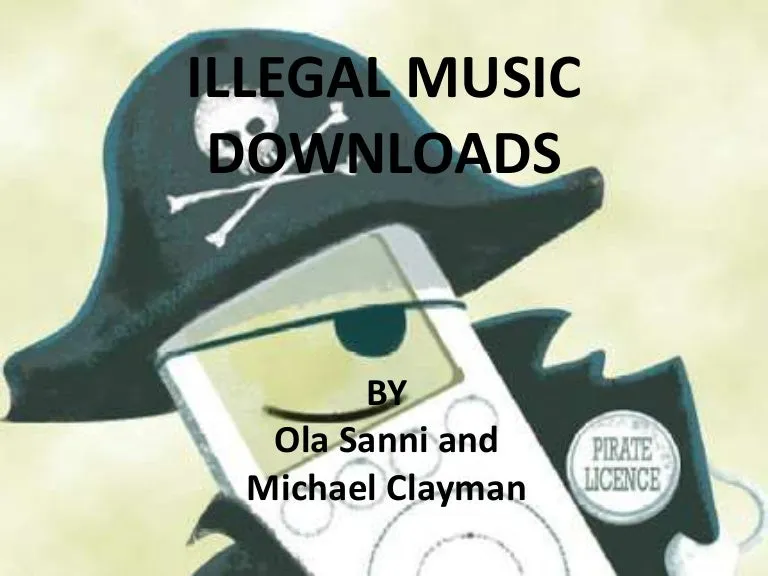In the age of digital media, music streaming has become a staple in our everyday lives. YouTube Music, in particular, offers an extensive library of songs, playlists, and personalized recommendations. However, many users often wonder about the legality of downloading music for offline use. Is it a gray area or outright illegal? Let’s dive into the topic and clarify these concerns.
Understanding YouTube's Terms of Service
YouTube's Terms of Service (ToS) are essential for understanding what users can and cannot do with the platform’s content. When you sign up for YouTube Music, you agree to these terms, which outline the rules governing the use of the service.
Here are some key points from YouTube's ToS that relate to downloading music:
- Streaming Only: YouTube Music primarily allows users to stream content rather than download it. This means that while you can listen to songs online, downloading them for offline use is generally not permitted unless explicitly stated by the platform.
- Authorized Content: Any downloaded content must be authorized by YouTube or the content creator. This means that most songs or videos available on the platform are protected by copyright, and downloading them without permission violates these rights.
- YouTube Premium: Subscribers to YouTube Premium have the option to download music for offline listening. This is a legal way to enjoy your favorite tracks without needing to be connected to the internet. However, this feature is only available under specific conditions outlined in the Premium agreement.
- Third-Party Tools: Using third-party applications or websites to download music from YouTube is against the ToS. These tools often infringe on copyright laws and can lead to legal consequences for users.
In summary, understanding YouTube's ToS is crucial for anyone considering downloading music for offline use. While the platform offers legitimate options through its subscription services, unauthorized downloading remains a legal gray area that users should navigate carefully.
Also Read This: Mastering Privacy on Behance to Safeguard Your Creative Projects
The Legal Implications of Downloading Music
When it comes to downloading music from YouTube for offline use, things can get a bit murky. The legality of this action often hinges on a couple of key factors: copyright laws and the terms of service provided by YouTube itself.
First off, let’s talk about copyright. Most music you find on YouTube is protected by copyright, meaning the creator or publisher has exclusive rights over how that music is distributed and used. Downloading this music without permission could potentially infringe on those rights. Here’s a simple breakdown:
- Copyright Infringement: Downloading copyrighted music without permission is illegal and can lead to legal repercussions.
- Fair Use: Some argue that downloading for personal use might fall under fair use, but this is a gray area and varies by country.
Next, consider YouTube's own terms of service. When you use YouTube, you agree to follow their rules, which generally prohibit downloading videos or music without permission. If you were to download music via third-party apps or sites, you might be violating these terms, which could lead to your account being suspended or terminated.
In summary, while many people do download music from YouTube, doing so legally is a tricky business. It's essential to understand both copyright laws and the platform's terms to avoid any legal pitfalls.
Also Read This: Creating an Apple ID: A Comprehensive Step-by-Step Guide
Alternatives for Offline Listening
If you're looking for ways to enjoy music offline without running into legal troubles, you’re in luck! There are several legitimate alternatives to consider. Here are a few:
- Spotify: This popular music streaming service allows you to download songs for offline listening if you have a premium subscription.
- Apple Music: Similar to Spotify, Apple Music also offers an offline listening feature for subscribers.
- YouTube Premium: By subscribing to YouTube Premium, you can download music videos and songs for offline use legally.
- Amazon Music: This service offers offline listening options for its subscribers, providing a vast library of songs.
- SoundCloud: Some artists allow their tracks to be downloaded for free or for a fee, and you can listen to them offline.
These platforms not only provide legal access to music but also enhance your listening experience with features like curated playlists, personalized recommendations, and more. So, why risk it with illegal downloads when there are so many fantastic alternatives available?
Is Downloading YouTube Music for Offline Use Illegal?
The debate over the legality of downloading YouTube Music for offline use has gained traction in recent years as more users look for ways to enjoy their favorite tracks without consuming data. Although YouTube offers a feature that allows subscribers to download music for offline listening, the legality of downloading content through third-party apps or websites is murky. Below, we'll explore the various aspects of this issue.
Understanding YouTube Music's Terms of Service:
- YouTube Music is a subscription-based service that allows users to download songs for offline listening as part of their subscription.
- According to YouTube's Terms of Service, users are prohibited from downloading content unless a download button or link is explicitly provided by YouTube.
- Using third-party software to download music from YouTube violates these terms and may be considered copyright infringement.
Legal Implications:
| Action | Legality | Potential Consequences |
|---|---|---|
| Downloading via YouTube Music App | Legal | None |
| Using Third-Party Software | Illegal | Legal action, fines |
| Sharing Downloaded Content | Illegal | Legal action, fines |
In conclusion, while downloading music through the official YouTube Music app is legal, using third-party tools to download content may lead to legal repercussions and violate YouTube's terms of service. Therefore, users should adhere to the platform's guidelines to avoid potential issues.
